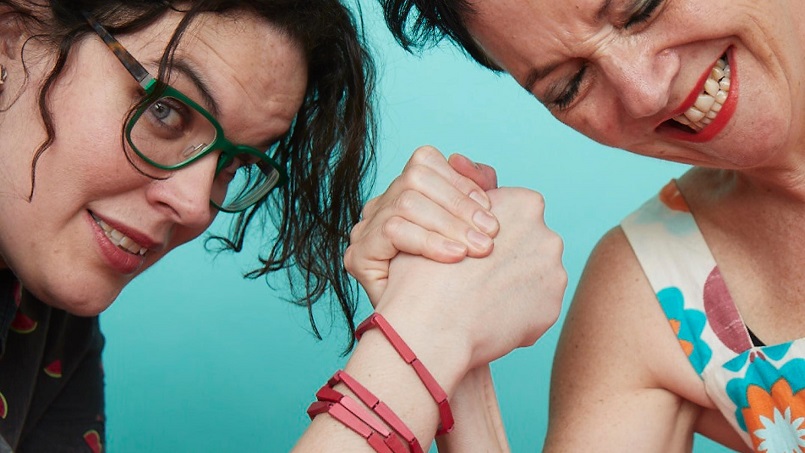
A quick test could overturn what years of handwriting has taught you about yourself — you may not be right-handed after all.
No matter where you are in the world, most people use their right hand for most things. More than 85 per cent of us are right-handed — even foetuses at 10 weeks preferentially move their right hand.
And the preference seems to be just a human thing — our close relatives the apes are split right down the middle on the left/right-handedness. Fifty per cent of them are lefties.
Test yourself
- Grab a game of Battleship
- Practice moving the pegs from one side to the other with each hand first
- Have someone record your time — at least 10 trials with each hand
- Average your scores to see which hand is faster. Is it the one you write with?
- You can even calculate your PegQ = [2(L-R)/(L+R)]
We still don't know why humans have this skew to being right-handed, but studies that have taken a new approach to handedness have found some interesting genetic clues. And they've overturned the way we think about left vs right — in hands at least.
Instead of just asking people which hand they write with, these studies, led by Dr Silvia Paracchini at St Andrews University in Scotland, actually measured how skilled each person was with their left and right hand. And their results went way beyond the basic 85 per cent divide.
They used a simple pegboard test — the kind usually used for testing manual dexterity — to measure how long it took individuals to move 10 pegs across a board. After timing people multiple times with each hand, the averaged results were converted into a score, called the PegQ.
We're all on a spectrum
And it turns out that we're not simply left- or right-handed; we're all on a spectrum of handedness.
So while you might write with your right hand, your PegQ score could show you're more left-handed overall — like Alice was in our Facebook video.
The higher your PegQ score, the more right-handed you are, while a negative PegQ makes you more of a leftie. (Clearly it will take more than a quantitative peg test to rid the world of judgemental language about left-handedness).
And just because you write with your right hand doesn't mean you come up on the 'right' side of the spectrum. (Just ask Alice — a life-long right-hander with a left-handed peg test result).
More importantly, using this new measure of how left- or right-handed people are, instead of a simple left vs right, the researchers found a variation of a gene that seems to be connected to the left vs right-handed story.
"I should get some DNA from Alice!" Dr Paracchini said
The asymmetry gene
This gene, PCSK6, was always a likely candidate for having a role in handedness, because it's involved in other asymmetries, like which side of our bodies organs like the heart and liver end up on.
But genetics researchers could never find a link between the gene and handedness in previous studies. And it looks like the problem was that they were relying on whether people said they were left- or right-handed.
The PegQ scores let Dr Paracchini's group isolate extreme lefties and righties, as well as those who were close to 50:50. And that was when the link with PCSK6 jumped out of the data.
Dr Paracchini's study — the first to find the PCSK6 link — was done in children with dyslexia, and the same result didn't play out in a population without dyslexia, so this one gene is definitely not the full story.
In fact, genes seem likely to account for only 25 per cent of the factors that affect handedness; like with so many other human traits, our environment and socialisation probably account for the rest.
But with unusual asymmetries linked to conditions like dyslexia and schizophrenia, studying the genetic basis of asymmetric features like handedness will continue.
"I think this pegboard measure has the potential to unlock some of the mechanisms contributing to handedness and perhaps … what role brain asymmetries play in disorders" Dr Paracchini said.
With new technology making genome-wide studies faster and cheaper, we may eventually understand why 85 per cent of foetuses and folk prefer their right hand.
